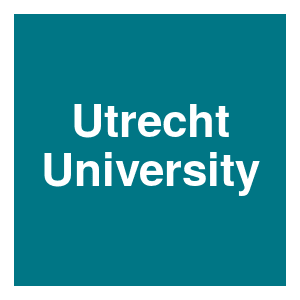
Keywords: biotechnology

|
Between the lab and the Wild: Establishing the Potential of Gene Drive Mosquitoes for Malaria ControlMäkelin, M., Science as Culture, 2024.
Malaria control has been one of the defining goals in global health. Keywords: biodiversity, biotechnology, conservation, DNA, endangered species, gene drive opinion, gene drive synthetic, genes, genetic markers, genomics, transcriptomics |

|
Brazil city deploys modified mosquitos to fight dengue surgeReuters, The Globe and Mail, 2024.
A British biotechnology company is betting on a solution to Brazil's surging dengue cases, involving the release of genetically modified mosquitoes to reduce the viral infection's spread. Keywords: biodiversity, biotechnology, conservation, DNA, endangered species, gene drive opinion, gene drive synthetic, genes, genetic markers, genomics, transcriptomics |

|
A bumpy road ahead for genetic biocontainmentGeorge, D.R., Danciu, M., Davenport, P.W. et al, Nature Communications, 2024.
The environmental release of bioengineered organisms is increasingly being suggested for a variety of applications, including bioremediation, biosequestration, bio-mining, environmental biosensing and conservation. The objectives of many environmental release applications shift ... Keywords: biodiversity, biotechnology, conservation, DNA, endangered species, gene drive opinion, gene drive synthetic, genes, genetic markers, genomics, transcriptomics |

|
Programmed evolution: Using asexual gene drives to sculpt tumor populations and combat genetic diversityJustin Pritchard, Scott Leighow, Joshua Reynolds et al., Research Square, 2024.
Resistance evolution is responsible for the failure of most targeted anticancer therapies. Tumor heterogeneity is so profound that pre-existing resistance is thought to be guaranteed at the time that advanced disease is detected. The practice of waiting for treatment failure and ... Keywords: biodiversity, biotechnology, conservation, DNA, endangered species, gene drive opinion, gene drive synthetic, genes, genetic markers, genomics, transcriptomics |

|
Ghana publishes its guidelines on Genome EditingAnonymous, BusinessGhana, 2023.
Ghana's National Biosafety Authority (NBA) has published its guidelines on Genome Editing and Gene Stacks with regards Genetically Modified Organisms (GMOs) joining Nigeria, Kenya, and Malawi, as the fourth country in Africa with the guidelines. Genome editing is an emerging and ... Keywords: biodiversity, biotechnology, conservation, DNA, endangered species, gene drive opinion, gene drive synthetic, genes, genetic markers, genomics, transcriptomics |

|
Gene drive technologies: navigating the ethical landscapeN. d. Graeff, Utrecht University, 2022.
Gene drives are technologies that modify a particular genetic element in animals or insects so that this genetic element does not follow the typical rules of heredity, and is passed onto future generations with an increased likelihood. Gene drive technologies could be used to ... Keywords: biodiversity, biotechnology, conservation, DNA, endangered species, gene drive opinion, gene drive synthetic, genes, genetic markers, genomics, transcriptomics |

|
Economic issues to consider for gene drivesMitchell, PDB, Z.; McRoberts, N., Journal of Responsible Innovation, 5:S180-S202. 2018.
We examine four economic issues regarding gene drive applications made possible by gene editing technologies. First, whether gene drives are self-sustaining or self-limiting will largely determine which types of organizations have incentives to develop and deploy gene drives and ... Keywords: biodiversity, biotechnology, conservation, DNA, endangered species, gene drive opinion, gene drive synthetic, genes, genetic markers, genomics, transcriptomics |

|
Gene drive inhibition by the anti-CRISPR proteins AcrIIA2 and AcrIIA4 in Saccharomyces cerevisiaeBasgall, EMG, S. C.; Goeckel, M. E.; Giersch, R. M.; Roggenkamp, E.; Schrock, M. N.; Halloran, M.; Finnigan, G. C., Microbiology-Sgm, 164:464-474. 2018.
Given the widespread use and application of the clustered regularly interspaced short palindromic repeats (CRISPR)/Cas gene editing system across many fields, a major focus has been the development, engineering and discovery of molecular means to precisely control and regulate ... Keywords: biodiversity, biotechnology, conservation, DNA, endangered species, gene drive opinion, gene drive synthetic, genes, genetic markers, genomics, transcriptomics |

|
A bigger toolbox: Biotechnology in biodiversity conservationR. T. Corlett, Trends in Biotechnology, 35:55-65. 2017.
Conservation biology needs a bigger toolbox to meet unprecedented challenges. Genomics, fueled by declining sequencing costs, offers novel tools with increased precision for genetic questions previously answered with a few molecular markers, as well as completely new ... Keywords: biodiversity, biotechnology, conservation, DNA, endangered species, gene drive opinion, gene drive synthetic, genes, genetic markers, genomics, transcriptomics |

Contact
David O’Brochta
Foundation for the
National Institutes of Health
geneconvenevi@fnih.org
RSS

